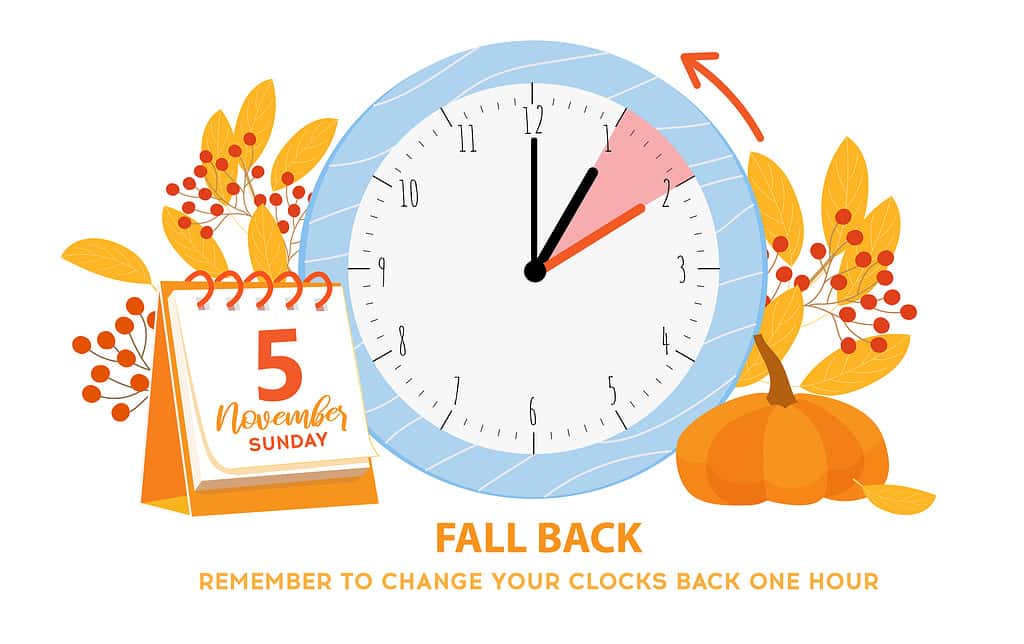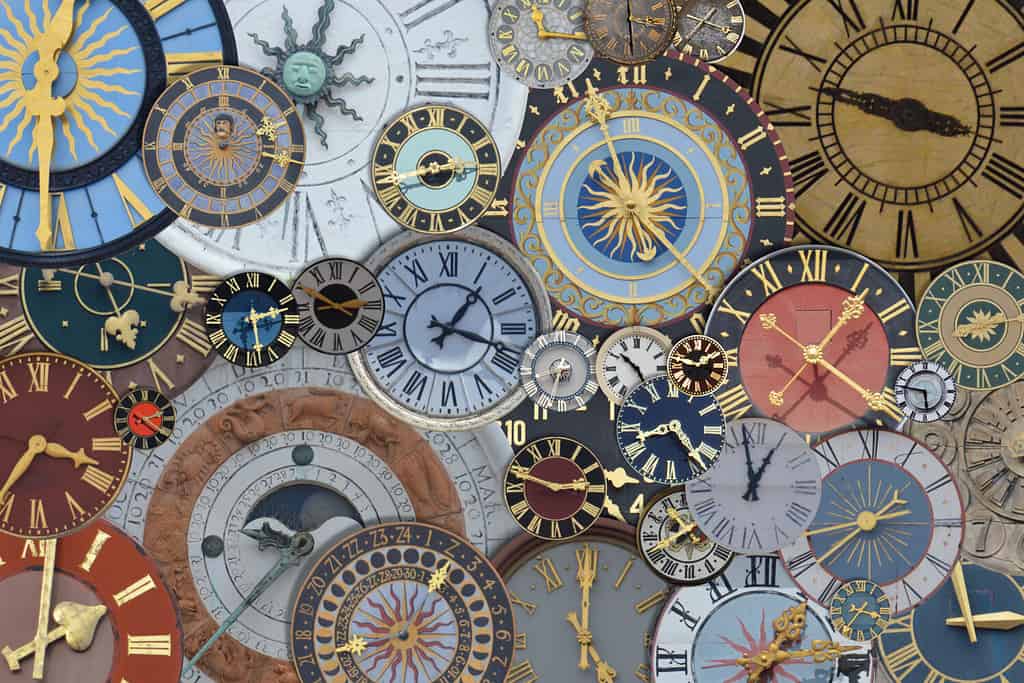7 Reasons the U.S. Should Get Rid of Daylight Savings Time Forever
Daylight Savings Time (DST) is the period between Spring and Fall when the clocks are set forward 1 hour. When this happens, afternoon light becomes longer and mornings become darker. DST has been abolished in Arizona and Hawaii, but should it be abolished nationally? We’ll go over 7 reasons the U.S. should get rid of Daylight Savings Time forever.
1. Daylight Savings Time Disrupts Sleep

©Olga Tsareva/iStock via Getty Images
When the changing of clocks in the spring causes people to lose an hour, it disrupts sleep cycles. Most people lose about a half hour of sleep for the first few days after the time shift. However, for some, their sleep remains disturbed throughout DST.
Neurodivergent people are especially affected by the time change. That’s because their sleep schedules are usually on a strict routine and a change in how time functions messes up these schedules. This results in a disruption that affects the entire quality of the day.
The sleep disturbances caused by DST are the root of almost every other problem that occurs as a result of time changes. Strokes, headaches, sundowning, heart attacks, mood disorder episodes, and weight gain are all affected by the sleep disruptions caused by transitions related to Daylight Savings Time.
2. Time Changes Increase Stroke Risks

©mybox/Shutterstock.com
The first two days before and after the switch to Daylight Savings Time come with a proven increase in stroke risk. However, even though the number of strokes increases due to DST, hospital deaths because of strokes do not increase.
It’s shown that 8 percent more strokes occur on the Monday after the flip to DST than average. This risk increases in the elderly population with a 20 percent increase in stroke risk directly following the springtime change into Daylight Savings Time.
People suffering from cancer are at a higher risk of having a stroke two days after a time change. Their risk of a stroke grows by 25 percent during this period.
3. Daylight Savings Time Causes Headaches

©BlueDesign/Shutterstock.com
People who suffer from cluster headaches and migraines are often triggered by a time change. That’s because a change in a person’s circadian rhythm can trigger a headache.
The start and end of DST is known to trigger cluster headaches. Cluster headaches are head pain attacks that happen every day for a month and a half to two months before going dormant.
When time switches and sleep is affected, one of these cluster headache bursts can be activated. This happens because the section of the brain called the hypothalamus that creates cluster headaches is also in charge of circadian rhythms.
Migraines also increase immediately after a time change. Since migraines can be triggered by sleep deprivation, the spring switch into DST is especially damaging.
4. Time Changes Trigger Sundowning

©Romolo Tavani/Shutterstock.com
People suffering from Parkinson’s or Alzheimer’s disease suffer from a phenomenon called sundowning. Sundowning is a period of confusion, irritability, agitation, and restlessness that happens with patients dealing with cognitive issues. It happens when daylight disappears in the evening, and it can result in delayed or dysfunctional sleeping which worsens the patient’s grasp on reality.
The more incidents of sundowning that occur affect the quality of sleep that a patient gets, and this is a self-perpetuating cycle that can cause a deterioration in condition. A change in sunlight during time changes can trigger these bouts of confusion by changing the sunlight tied to these disruptions.
5. Daylight Savings Time Increases Heart Attack Risks

©Ground Picture/Shutterstock.com
On the Monday following the flip to DST, 10 percent more heart attacks occur than average. In women, this risk can be as great as 29 percent during the springtime change into DST though it’s probably less. The most significant increase in heart attack risk for both genders is the week following the spring change.
This is again caused by a disturbance in a person’s circadian rhythm due to sleep deprivation. As a result of this increased tendency for heart attack risk, some medical professionals are calling for an end to DST. Some want further studies to be conducted so that hospitals can gain the extra funding they need for extra preparedness on the days following the springtime shift.
6. Daylight Savings Time Triggers Mood Disorders

©marialevkina/Shutterstock.com
People who deal with mood disorders like bipolar disorder experience mood disruptions during time changes. That’s because excellent sleep hygiene is required to keep their mental illness under control. If sleep hygiene is affected negatively, mood episodes such as mania and depression can be triggered.
When a time change occurs, sleep disturbances happen. These sleep disturbances persist for days if not weeks or months after the initial time change. As a consequence, reduced sleep or a change in bedtime is enough to affect the regimented sleep needed for people living with a mood disorder.
7. Time Changes Contribute to Weight Gain

©Ant DM/iStock via Getty Images
Since time changes affect sleep cycles, DST is associated with weight gain. When a person doesn’t get a full night of sleep, the human body can create too much of the hormones leptin and ghrelin. These hormones are associated with feeling hungry.
If a sleepy person is feeling more hungry, diets tend to get thrown out the window. As a result, a larger quantity of high-calorie foods may be substituted for more sensible food choices. Tired people also seek out more snacks, sugary desserts, and quick meals like fast food.
People who are sleep-deprived are also less motivated to exercise. However, reduced exercise can feed into cycles of sleep deprivation. When someone wakes up in the morning to exercise but finds it’s still dark outside, the chances of flaking on an exercise routine grow.
Summary of the Reasons the U.S. Should Get Rid of Daylight Savings Time Forever
| Reasons the U.S. Should Get Rid of Daylight Savings Time Forever | |
|---|---|
| 1 | Daylight Savings Time Disrupts Sleep |
| 2 | Time Changes Increase Stroke Risks |
| 3 | Daylight Savings Time Causes Headaches |
| 4 | Time Changes Trigger Sundowning |
| 5 | Daylight Savings Time Increases Heart Attack Risks |
| 6 | Daylight Savings Time Triggers Mood Disorders |
| 7 | Time Changes Contribute to Weight Gain |









